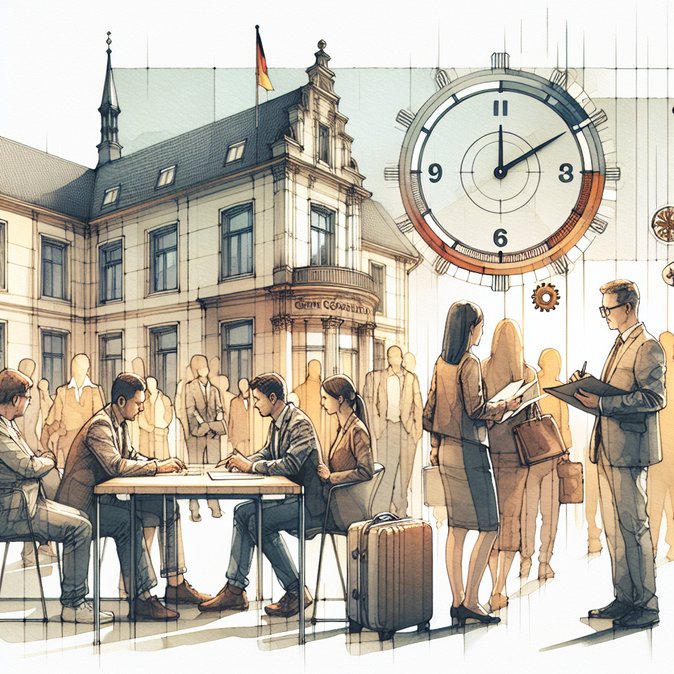
Shanghai/Beijing—German consular posts across China have quietly introduced additional internal security screening that is pushing visa-issuance times well beyond normal service standards, according to a regional alert released on 6 November 2025 by mobility consultancy Vialto Partners. The checks target applicants in sensitive STEM fields or with particular nationalities and require Berlin-level sign-off from multiple security agencies before a visa can be granted.
Applicants report that decisions, especially for national (D-category) visas covering employment, research and long-term study, are sitting in limbo for eight to twelve weeks instead of the advertised two to four. Consulates have confirmed in e-mail responses that files are ‘awaiting feedback from domestic authorities’. Although no official policy paper has been published, the move aligns with Interior Minister Alexander Dobrindt’s pledge to tighten technology-transfer controls after allegations of IP leakage in advanced-manufacturing projects.
![German consulates in China trigger lengthy security reviews, stalling work and study visas]()
Business impact:
• Project delays—German firms relying on Chinese engineers or PhD researchers must pad timelines and consider remote onboarding until clearances come through.
• Compliance exposure—assignment letters and research proposals are being scrutinised for dual-use risk; incomplete documentation triggers further holds.
• Talent optics—prolonged uncertainty may dissuade high-calibre Chinese candidates, exacerbating already acute skills shortages in Germany’s semiconductor and green-tech sectors.
Best-practice responses include starting visa files at least four months before the planned start date, maintaining meticulous export-control assessments, and preparing fallback travel-rotation plans. Companies should also brief hiring managers that security vetting is discretionary; escalating through industry associations or the AHK can sometimes accelerate non-sensitive cases.
While the measure is not a formal policy change, practitioners expect it to remain until the government publishes a broader ‘critical technologies’ immigration framework promised for Q1 2026.
Applicants report that decisions, especially for national (D-category) visas covering employment, research and long-term study, are sitting in limbo for eight to twelve weeks instead of the advertised two to four. Consulates have confirmed in e-mail responses that files are ‘awaiting feedback from domestic authorities’. Although no official policy paper has been published, the move aligns with Interior Minister Alexander Dobrindt’s pledge to tighten technology-transfer controls after allegations of IP leakage in advanced-manufacturing projects.

Business impact:
• Project delays—German firms relying on Chinese engineers or PhD researchers must pad timelines and consider remote onboarding until clearances come through.
• Compliance exposure—assignment letters and research proposals are being scrutinised for dual-use risk; incomplete documentation triggers further holds.
• Talent optics—prolonged uncertainty may dissuade high-calibre Chinese candidates, exacerbating already acute skills shortages in Germany’s semiconductor and green-tech sectors.
Best-practice responses include starting visa files at least four months before the planned start date, maintaining meticulous export-control assessments, and preparing fallback travel-rotation plans. Companies should also brief hiring managers that security vetting is discretionary; escalating through industry associations or the AHK can sometimes accelerate non-sensitive cases.
While the measure is not a formal policy change, practitioners expect it to remain until the government publishes a broader ‘critical technologies’ immigration framework promised for Q1 2026.









